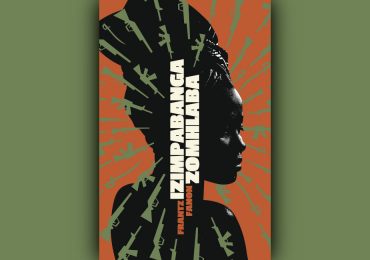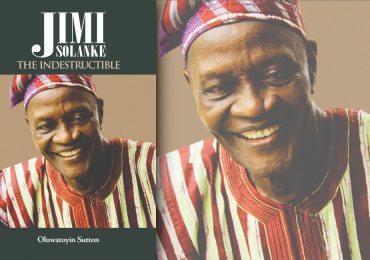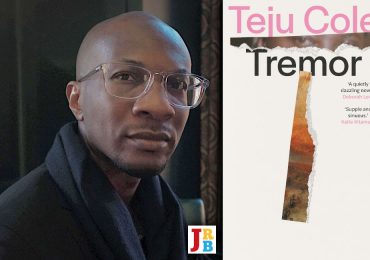Fred Khumalo recalls being swept off his feet by Alan Paton, the African Writers Series and James Hadley Chase.
It’s a question that every writer is most likely to be confronted with at some stage of their career: what has been the most influential book in your life?
First of all, as a kid I was never read a bedtime story. There were no books to read at home. My parents were at the bottom rung of the working class. My father was a horse groom and my mother a domestic worker. Every now and then, my mother would bring popular magazines home from work. Occasionally, some books too. The Famous Five by Enid Blyton and so on. Until I got to high school, I couldn’t really read these books. They were written in English.
Although we did what we called English recitations in primary school—repeating the sounds the teacher was making in this foreign tongue—we did not understand what we were saying. Once, one of our teachers made us recite: ‘All kaffir boys eat mealie meal and do not think at all.’
We later discovered it was a recitation she had been taught as a child. Even though by the time she became a teacher she understood what it meant, it never occurred to her to flush it out of her mind; it was part of her heritage, something that had been drummed into her head because it had rhythm and was memorable.
Until I got to high school I had never read and finished an English book on my own. I had read many Zulu novels – Wayesezofika ekhaya, Mntanami! Mntanami!, and many others. But no English novels.
The books that we read in the early years of high school—Shakespeare’s The Merchant of Venice, a western novel called Shane, a supposed thriller called Leon Solves The Mystery—did not hit the right note for me. Even when we read with a dictionary at our sides, many aspects of the story did not make sense.
You have to recall that we only really encountered English in standard six (today’s grade eight). Even though our General Science and Social Studies books at standard four and five were written in English, most of the time the teachers would read them to us in English, and then summarise the text in isiZulu. As a result, by the time we got to high school our English was shaky at best; or, at worst, simply non-existent.
I always say those who dreamt up Bantu Education had a morbid sense of humour. For when we got to high school the system suddenly dropped in our laps heavy texts, such as the aforementioned Merchant of Venice; later, in standard nine, we read Julius Caesar and Thomas Hardy’s Tess of the D’Urbervilles. ‘Thou’, ‘dost’, ‘thee’, ‘yonder’. We were stunned: what the fuck? That’s not how ‘our’ white people sound like when they speak, and we are told they speak English!
Which brings me to one of the authors who changed my life, in a crazy kind of way. By some immutable law of the township, somebody exposed us to a writer called James Hadley Chase. Contrary to popular belief, I did not go to a boarding school run by missionaries. I am a product of Bantu Education, and I later vomited its poison at the feet of Mafika Gwala, the poet who became my mentor in my later years of high school. But back to Hadley Chase. What immediately appealed to us about this gentleman’s books were the covers. Ah, the covers. At a time when it was a crime for a black man to look at a white woman ‘a certain way’, this Chase chap gave us books with covers featuring semi-naked white women looking dreamily at us, their lips pouted seductively, and a gleaming gun cradled strategically in their crotch area, to cover their nakedness.
If the covers were this good, we reasoned, then the content would be explosive! So, armed with our shaky English vocabularies, we rolled up our sleeves and delved into Chase’s yarns. The titles were racy too: I’ll Get You For This, No Orchids for Miss Blandish, What’s Better Than Money?, You Never Know With Women, Just Another Sucker, I’ll Bury My Dead, There’s Always a Price Tag … oh, I want to claw back to the past, sit at our kitchen table long after everyone has gone to bed, and devour Chase—until my mother shouts from her bedroom, ‘Hey, wena! You’re finishing my candles! Go to sleep now!’
In Chase we discovered the perfect antidote to the English Classics. While the Wordsworths of the world wrote about dales and daffodils (‘What the fuck is a daffodil?’ we wondered) Chase told us about fast cars, beautiful women, fast-talking well-dressed gangsters, guns and knives—stuff that resonated with us because we saw some of it in the streets, or in movies that we watched at the local community hall (which doubled as a bioscope, showing movies projected on a white sheet pinned to the wall).
It also helped that Chase wrote in easy English, with lots of American slang, straight out of the Hollywood films we were familiar with. Soon, we were hooked. Some of us started collecting new words and phrases from Chase, words which we would scribble into our private notebooks, for future use in our English class compositions, or in daily street conversation, to prove that we were streetwise. Not unlike the kids of today who steal phrases from hip-hop. You kno’ wha’m sayin’ mah niggahs. We be down like that with old Chase.
When we went back to class and the teacher stood at the front reading from Wuthering Heights, some of us would open the book at the correct page but then tuck a Chase novel inside. As the teacher continued to drone on up there, we would start laughing. Initially the teacher would be impressed, assuming we were with him. But he would soon realise that we were laughing at the wrong places, and flipping the pages much faster than we should have been.
When he finally wised up to what was happening, the teacher would confiscate the book. No sweat. We were guaranteed to get another copy in the streets, paying about twenty cents for the privilege of taking the book home to read it overnight. If the book was a day late, there was a penalty of ten cents. Reading a book, then, was cheaper than watching movies. Some forward-looking teachers were happy that we were reading, even if it was trashy, cliché-ridden Chase sleaze.
When we graduated from Chase, the streets introduced us to books from the African Writers Series. While they were not as fast-paced or as overwhelmingly entertaining, the saving grace of the African Writers Series was that the books were about people like us, black people. The people in these books, be they from Nigeria or Kenya, had at some stage been confronted with the same challenges we were faced with: their lands were stolen by colonisers, which led them to starvation, and later to war for liberation. We were in our mid-teens by now—inevitably politically conscious.
It was during this time of gradual politicisation that I encountered Alan Paton’s Cry, the Beloved Country. This was the most personal book I’d ever read. It was set in Ixopo, where my father was born. The main character was Kumalo, I am Khumalo. The people in the book had been reduced to beggars after their land was stolen by colonisers, which evoked my father’s own story. His grandparents had owned land in the Ixopo area in the eighteen-hundreds. After the successive land acts, which dispossessed black people, they were moved from pillar to post, until some of them decided to go to the cities, in the mistaken belief that life there would be better. Like Paton’s characters, who soon discover what a vicious creature the city is, my people spent forty years living harshly in various towns and cities.
The power of Cry, the Beloved Country is its simplicity. It tells the tale of Reverend Kumalo who loses his family to the city. The story resonated with me immediately, for a number of reasons. It had the criminal drama that I had enjoyed in the books of James Hadley Chase. But buried deep beneath that was a powerful political message: how white greed for land had destroyed the black community, and how this further complicated race relations in South Africa.
The novel’s denouement speaks to this inevitable complication of race relations. This is what Reverend Msimangu, Kumalo’s friend, says: ‘I have one great fear in my heart, that one day when they are turned to loving, they will find we are turned to hating.’
The breathless intensity of these words can never be over-emphasised. At the time they were written, in 1946, the black masses were on their knees, begging their supposed white fellow countrymen to treat them as equals. These blacks were still full of love. They hadn’t embarked on the different marches of defiance; they hadn’t resorted to armed insurrection. They were still begging, ‘Can we please get along?’
When we look at Msimangu’s utterances we can only marvel at Paton’s prophecy. Seventy years after it was published, Cry, the Beloved Country is a text we should revisit to understand the current talk about land expropriation without compensation. It also contextualises the upsurge of so-called white farm killings that had Donald Trump in a froth not so long ago.
‘Aye, and cry aloud for the man who is dead, for the woman and children bereaved. Cry, the beloved country, these things are not yet at an end. The sun pours down on the earth, on the lovely land that man cannot enjoy. He knows only the fear of his heart.’
On the surface, Paton’s novel is a far cry from the James Hadley Chase books that swept me off my feet and first plunged me into the churning maelstrom that is called reading. But when you come down to it, both of these authors—in their own way—sincerely strived to celebrate our shared humanity. Which is what good writing is or should be about. As human beings, we bleed, we cry, we make love, we laugh, we think, we struggle through life. Literature—be it highbrow or pulp fiction—should bear witness to these moments, no matter how fleeting. With memorable writing, the search for what it means to be a human being in the world is always bubbling just below the surface.
- Fred Khumalo is the author of Dancing the Death Drill. Follow him on Twitter.






I am a 71 year old pensioner who lives on R1700 a month.
I have many James Hadley Chase novels which to my mind are collectors’items and which I wish to sell at R100 each.